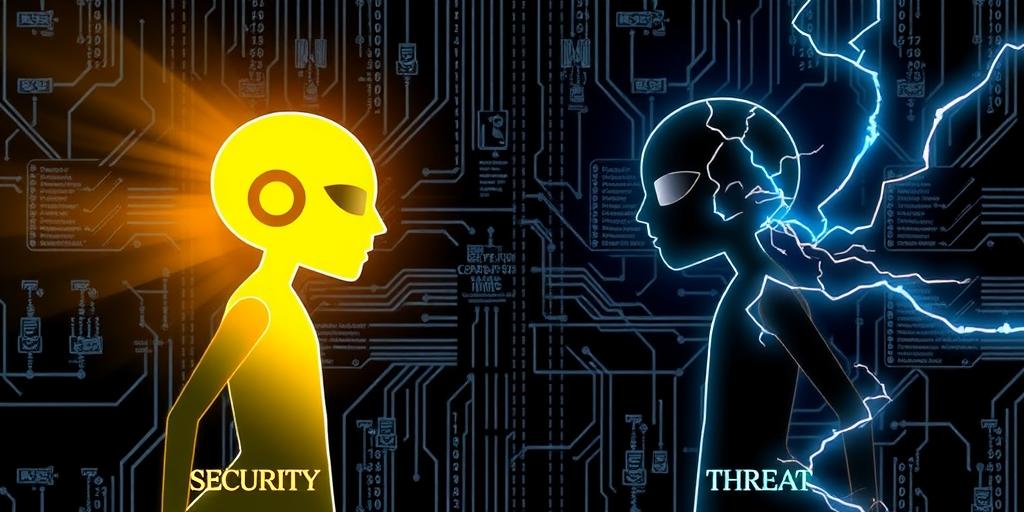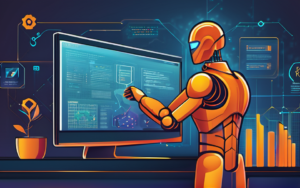In the digital age, our lives are increasingly intertwined with technology, making cybersecurity a paramount concern. From safeguarding personal data to protecting critical infrastructure, the stakes are high, and the question arises: can we ever truly achieve cybersecurity, or is it an elusive goal? This exploration delves into the philosophical implications of cybersecurity, examining the limitations, ethical considerations, and the human element that ultimately shapes our digital defenses.
The Elusive Goal of True Cybersecurity
Defining “True Cybersecurity”
The term “true cybersecurity” implies a state of absolute security, where all data and systems are completely protected from any form of attack. However, this ideal is arguably unattainable. Cybersecurity is a dynamic field constantly evolving to combat new threats and vulnerabilities. The emergence of sophisticated hacking techniques, such as zero-day exploits, and the ever-present threat of human error create a complex landscape where achieving absolute security becomes a moving target.
The Constant Arms Race
The cybersecurity landscape resembles an ongoing arms race between defenders and attackers. As security measures become more sophisticated, attackers find new ways to circumvent them. This cycle of innovation and counter-innovation makes it difficult to maintain a permanent state of security. Think of it like a game of cat and mouse, where the defender is always trying to stay one step ahead of the attacker.
The Philosophical Underpinnings of Cybersecurity
The Paradox of Security
One of the central paradoxes of cybersecurity lies in the very nature of security itself. The act of securing something often involves creating a barrier, which can inadvertently limit access and create new vulnerabilities. For example, a robust password policy might make it difficult for legitimate users to access their accounts, potentially leading to workarounds that weaken overall security. This highlights the inherent tension between security and usability.
The Role of Trust and Risk
Trust plays a crucial role in cybersecurity. We place trust in technology providers, software developers, and even fellow users to protect our data and systems. However, this trust is not always justified. Security breaches and data leaks demonstrate that even seemingly trustworthy entities can fail to safeguard sensitive information. Cybersecurity, therefore, involves a delicate balance of managing risk and assessing the level of trust we are willing to place in others.
The Ethics of Cybersecurity
Ethical considerations are interwoven into the fabric of cybersecurity. The potential for misuse of technology and the ethical implications of data collection, surveillance, and privacy raise complex questions. For example, the use of facial recognition technology in public spaces has sparked debate about the balance between security and individual freedoms. Cybersecurity professionals must be mindful of these ethical considerations and strive to develop and implement solutions that respect human rights and values.
The Human Factor in Cybersecurity
Human Error and Malice
Despite technological advancements, the human factor remains a significant vulnerability in cybersecurity. Human error, such as clicking on malicious links or neglecting to update software, can provide attackers with easy access to sensitive information. Furthermore, malicious insiders, driven by personal gain or ideological motives, can pose a serious threat to cybersecurity. This highlights the importance of cybersecurity education and awareness programs.
The Importance of Cybersecurity Education
Effective cybersecurity education is crucial for building a strong cybersecurity posture. Individuals should be educated about common threats, best practices for online safety, and the importance of strong passwords and multi-factor authentication. Organizations must invest in training programs for employees, ensuring they understand their role in maintaining a secure environment.
Building a Culture of Security
Creating a culture of security within an organization is essential for fostering a proactive approach to cybersecurity. This involves promoting a sense of ownership and responsibility among employees, encouraging them to report suspicious activity and actively participate in security initiatives. A culture of security emphasizes collaboration, transparency, and continuous learning.
The Future of Cybersecurity
Emerging Technologies and Threats
The rise of artificial intelligence (AI), Internet of Things (IoT) devices, and cloud computing creates new opportunities and challenges for cybersecurity. AI-powered attacks are becoming increasingly sophisticated, and the interconnectedness of IoT devices introduces new vulnerabilities. Cybersecurity professionals must adapt to these emerging technologies and develop solutions to mitigate the associated risks.
The Need for Adaptive Security
The ever-evolving nature of cybersecurity demands adaptive security solutions. Traditional static security measures are no longer sufficient. Instead, organizations need to adopt a proactive approach, constantly monitoring for threats, adapting to new vulnerabilities, and implementing dynamic defense mechanisms.
The Role of Collaboration and Innovation
Collaboration and innovation are crucial for advancing cybersecurity. Sharing information, best practices, and research among security professionals, government agencies, and technology companies is essential for staying ahead of emerging threats. Investing in research and development to explore new technologies and solutions is also crucial.
Towards a More Secure Future
The quest for true cybersecurity is an ongoing journey. While absolute security may remain elusive, we can strive towards a more secure future by embracing a holistic approach to cybersecurity. This involves continuous improvement, embracing innovation, and fostering a culture of security. By recognizing the limitations of technology and prioritizing the human element, we can build a stronger defense against cyber threats and navigate the digital landscape with greater confidence.




